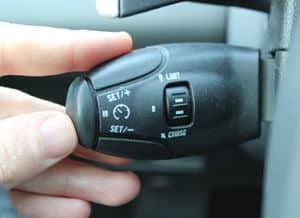Many auto dealerships rely on the LIFO (last in, first out) accounting method for inventory valuation to defer taxes. Since this method allows businesses to include inflation in the cost of goods sold, it’s a great way to temporarily lower tax liability and is most effective in times of high economic inflation.
However, the COVID-19 pandemic has interrupted supply chains and created myriad challenges in most industries, including car manufacturing. Most notably are the shortage in computer chips required for modern vehicles to operate causing bottlenecks at manufacturing facilities, and staff shortages at docks because of COVID precautions forcing slower unload times for ships and cargo. This has resulted in unprecedentedly low inventory levels for car dealerships and a spike in auto sales prices.
Since any dealership using LIFO accounting methods would have additional taxable income with a significant decrease in inventory, these supply chain issues could force a LIFO recapture for auto dealers and raise their tax liability for 2021.
IRC Section 473 Relief
The National Association of Auto Dealers (NADA) is lobbying the IRS for relief under Section 473 of the Internal Revenue Code (IRC). This section allows LIFO participants up to three years to increase inventory and avoid recapture, but only in instances of a “qualified inventory interruption.”
With the unprecedented inventory decrease, the 2021 tax liability could cause further challenges for auto dealers recovering from the pandemic by decreasing their cash and further impacting dealerships that do not have the cash on hand to pay the additional taxes.
While NADA believes these pandemic-related supply chain issues are cause for the IRS to issue a “qualified interruption,” the IRS has not yet approved these emergency measures. In the meantime, dealership leaders should consider their alternate options, so they’re informed and ready to take action at the end of their fiscal year.
Alternative Options for Tax Deferral
The following options are available for dealerships who have elected LIFO inventory valuation methods to offset the coming LIFO recapture this year. Keep in mind, any options that require a change in accounting method (Form 3115) will also restrict a dealership from re-electing LIFO accounting methods for a period of five years.
- Do nothing and pay taxes that have been deferred. This will allow dealerships to keep the LIFO accounting method and defer future years taxes when the supply chain recovers from the interruption. This may be a good option for dealers that have saved the previous year’s tax deferrals to consider.
- Combine LIFO pools on new vehicle inventory. Does your dealership account for truck and car inventory separately? If there was a decrease in one pool and an increase in the other, combining the pools could help offset the impact of reduced inventories on your tax bill. This will require filing for a change in accounting method as noted above.
- Change to the IPIC method. IPIC (inventory price index computation) allows for used vehicles and parts to be included in the inventory valuation. If a dealership has seen an increase in used vehicles, including trade-ins, this method could help offset the tax payment. Used vehicles hold a lower value than new vehicles because of depreciation, which means it can take several to make up for not being able to add one new vehicle to your inventory. This method also requires a Form 3115 filing and keeps dealerships from changing methods for five years.
- Revoke LIFO elections. If owners are considering selling the dealership in the next couple of years, or the dealership is facing 50% LIFO reserve recapture of more, revoking LIFO elections could be the way to go. This allows the tax recapture to be paid in four annual installments instead of coming due all at once and reduces the risk of future tax rate increases. As with other methods that change accounting methods, dealerships must file a Form 3115 and cannot re-elect LIFO determination for five years.
Determining which method would be best for your dealership can be complex, as is calculating any qualifications for an extended inventory recapture period if NADA is successful. A knowledgeable tax and accounting professional can help guide your team in the right direction. Reach out to our team to set up a consultation today!
Contact Daniel Keefer via our online contact form for more information.
Councilor, Buchanan & Mitchell (CBM) is a professional services firm delivering tax, accounting and business advisory expertise throughout the Mid-Atlantic region from offices in Bethesda, MD and Washington, DC.




